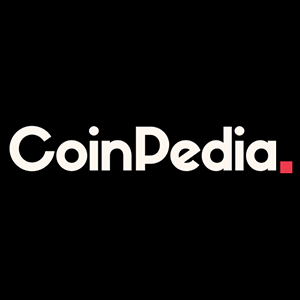Bitcoin Fees Hit 2025 High as Corporate Buys Draw Scrutiny
7 min read
Bitcoin’s growing presence on corporate balance sheets is prompting mixed reactions across markets. As transaction fees on the Bitcoin network hit their highest levels of 2025, Singapore-based Basel Medical Group announced plans to purchase $1 billion worth of the cryptocurrency through a share-swap arrangement. The move, intended to strengthen its financial position and support future acquisitions, was met with skepticism from investors, sending the company’s stock down 15%. Meanwhile, Bitcoin’s rising fees reflect renewed demand for its blockspace, even as daily transaction volume declines. Bitcoin Transaction Fees Rise as Price Pushes Toward $106K, Despite Slowing Activity Bitcoin (BTC) continues to capture market attention in May 2025, as its price briefly touched a new local high of nearly $106,000 before retreating slightly to around $104,500. While traders welcomed the surge, they also took note of a corresponding rise in transaction fees, which is a signal that demand for Bitcoin’s blockspace is once again heating up. According to recent data, the seven-day moving average of transaction fees on the Bitcoin network has climbed steadily since early May, reaching a 2025 high of $2.40. That marks a roughly $1 increase over just a couple of weeks. The growing fees are often seen as an indicator of increased network congestion and heightened competition for block inclusion, especially as Bitcoin’s price surges. Curiously, the fee increase isn’t being driven by a higher transaction count. In fact, the average number of daily transactions has been falling. Data shows that Bitcoin handled around 507,000 transactions on April 22, a figure that has since dropped more than 35% to approximately 330,000 daily transactions. This inverse correlation—higher fees despite fewer transactions—suggests that the transactions being processed may be larger, more complex, or more urgent, driving users to pay higher fees to ensure prompt confirmations. It also points to renewed activity from institutions or major holders willing to pay a premium to move funds during price rallies. Bitcoin Dominance Reclaims Ground Bitcoin’s market dominance, the metric that compares BTC’s market cap to that of the entire crypto ecosystem, has rebounded in recent days following a slight pullback earlier in the month. This recovery suggests that the dip in Bitcoin’s value relative to altcoins was more likely a result of temporary liquidity imbalances than a fundamental pivot toward an ”altcoin season.” Bitcoin dominance chart (Source: CoinMarketCap ) The latest bounceback in dominance signals that investors are still leaning heavily into Bitcoin during periods of volatility, affirming its status as the market’s most stable digital asset and primary store of value. One of the more bullish signals for Bitcoin comes from Glassnode’s data on illiquid supply. The amount of BTC held in wallets with little to no spending history has hit an all-time high, reducing the liquid supply available on exchanges. This tightening supply dynamic is key. With less Bitcoin available for immediate trade and rising demand spurred by both institutional interest and macroeconomic uncertainty, any continued inflows could rapidly tip the scales toward a supply shock. That scenario could drive prices even higher as buyers compete for a shrinking pool of tradable BTC. This trend reinforces a recurring theme in Bitcoin market cycles: HODLing behavior intensifies in anticipation of further gains, leaving less room for new buyers unless they’re willing to pay a premium. What’s Behind the Rally? Several factors appear to be fueling Bitcoin’s current rally. Renewed institutional interest, continued inflationary pressures in traditional economies, and growing concerns over global debt levels have made hard-capped digital assets more attractive. Additionally, geopolitical tensions and recent US Treasury discussions about expanding digital dollar research may be helping BTC find support as a decentralized alternative to state-issued currencies. And while the altcoin market has seen periodic excitement, Bitcoin remains the benchmark asset for those looking to hedge against macroeconomic instability. With transaction fees on the rise and network congestion mounting, the Bitcoin ecosystem may soon be tested again. Developers are watching closely for signals of renewed spam activity. particularly from inscriptions and Ordinals, that could artificially inflate network use. At the same time, increased fee revenues are welcomed by miners, especially following the recent halving which slashed block rewards. For now, the combination of surging illiquid supply, rising fees, and rebounding dominance presents a compelling setup for Bitcoin bulls. If liquidity continues flowing in and retail investors return in force, the case for a sustained push beyond $106,000 becomes more plausible. Yet caution is warranted. The divergence between price and transaction volume introduces potential volatility, especially if speculative activity returns to the market without fundamental support. As always in crypto, sentiment can shift quickly. Basel Medical Group Shares Fall 15% After Announcing $1B Bitcoin Treasury Purchase In other Bitcoin news, Basel Medical Group has become the latest public company to bet big on BTC, announcing plans to acquire $1 billion worth of the cryptocurrency for its corporate treasury. But the news has triggered a sharp sell-off, with shares of the Singapore-based healthcare provider plunging nearly 15% in intraday trading on May 16, according to Google Finance data. Basel Medical’s shares down 15% on May 16 (Source: Google Finance ) The market’s reaction suggests that while Bitcoin may be gaining traction as a treasury asset among corporations, shareholder skepticism remains high, particularly when the pivot comes from firms outside the tech or financial sectors. In a statement issued on May 16, Basel Medical said it is in “advanced discussions with a consortium of institutional investors and high-net-worth individuals” to acquire $1 billion in Bitcoin through a “novel share-swap arrangement.” The deal, the company claims, will significantly strengthen its balance sheet and enhance its ability to pursue mergers and acquisitions across Asia’s rapidly expanding healthcare sector. The Bitcoin allocation, Basel says, is designed to “establish a diversified asset base to weather market volatility” and provide “unmatched financial flexibility” amid ongoing expansion plans. Yet shareholders were far from reassured. Following the announcement, shares of Basel Medical Group (ticker: BMGL) fell precipitously, erasing over $150 million in market capitalization by midday. The sell-off mirrors other recent episodes where investors responded negatively to similar Bitcoin treasury announcements, casting doubt on whether corporate BTC strategies can win broad investor approval. Strategic Play or Risky Gamble? Basel Medical’s bold move is part of a broader strategy to fuel inorganic growth. Just last month, the firm acquired Bethesda Medical, a regional peer, in a move touted as “the beginning of Basel Medical Group’s expansion strategy in Singapore and the broader Southeast Asian healthcare market.” CEO Darren Chhoa defended the Bitcoin treasury pivot, calling it a cornerstone of the company’s M&A roadmap. “Our expanded balance sheet will allow us to move quickly on strategic opportunities as we build a premier healthcare platform across high-growth Asian markets,” Chhoa said. Still, market observers remain divided on the wisdom of merging Bitcoin speculation with healthcare operations. While some hail the move as visionary, others question whether volatile crypto assets belong on the books of a traditionally conservative industry like healthcare. Basel isn’t the first company to see its stock punished after announcing plans to buy Bitcoin. In March, GameStop lost almost $3 billion in market value in a single day after revealing its own plans to adopt a Bitcoin treasury model. Investors reacted with confusion, wondering whether the struggling video game retailer was losing strategic focus. “There are question marks with GameStop’s model,” eToro US investment analyst Bret Kenwell told Reuters at the time. “If bitcoin is going to be the pivot, where does that leave everything else?” Despite the pushback, Bitcoin treasuries continue to grow. According to BitcoinTreasuries.net, corporations now hold approximately $80 billion worth of BTC on their balance sheets. Early adopters like Strategy and Tesla have helped blaze the trail, with Strategy in particular using convertible debt and equity offerings to accumulate over $13 billion in Bitcoin. Bitcoin treasury metrics (Source: Bitcointreasuries.net ) Financial institutions are also becoming more open to the idea. In a 2024 report, Fidelity Digital Assets noted that Bitcoin could serve as a “valuable hedge against growing fiscal deficits, currency debasement, and geopolitical risks”—a view increasingly shared by macro investors amid uncertain global conditions. A Crypto Hedge for Healthcare? For Basel Medical, the rationale appears rooted in a desire to gain financial leverage without taking on traditional debt. The share-swap model being discussed could allow the company to issue new shares in exchange for Bitcoin from private investors, thereby acquiring the asset without immediate cash outflows. In theory, this would provide Basel with an appreciating reserve asset that could be liquidated or borrowed against in future acquisitions. But such a strategy depends heavily on Bitcoin’s continued upward trajectory, an assumption not all shareholders are willing to bet on. Moreover, critics argue that using shareholder capital to accumulate crypto risks undermining investor confidence in the firm’s core business. For a company operating in healthcare, where predictability and risk management are paramount, adding a volatile digital asset to the treasury could be perceived as reckless. The Basel news comes at a time when Bitcoin itself is on the rise, recently trading just above $104,000. As macroeconomic uncertainties mount and fiat currencies face growing scrutiny, more companies may consider Bitcoin exposure as a strategic asset. But as this week’s sell-off shows, the market is still drawing a line between financial innovation and speculative overreach.

Source: Coinpaper



